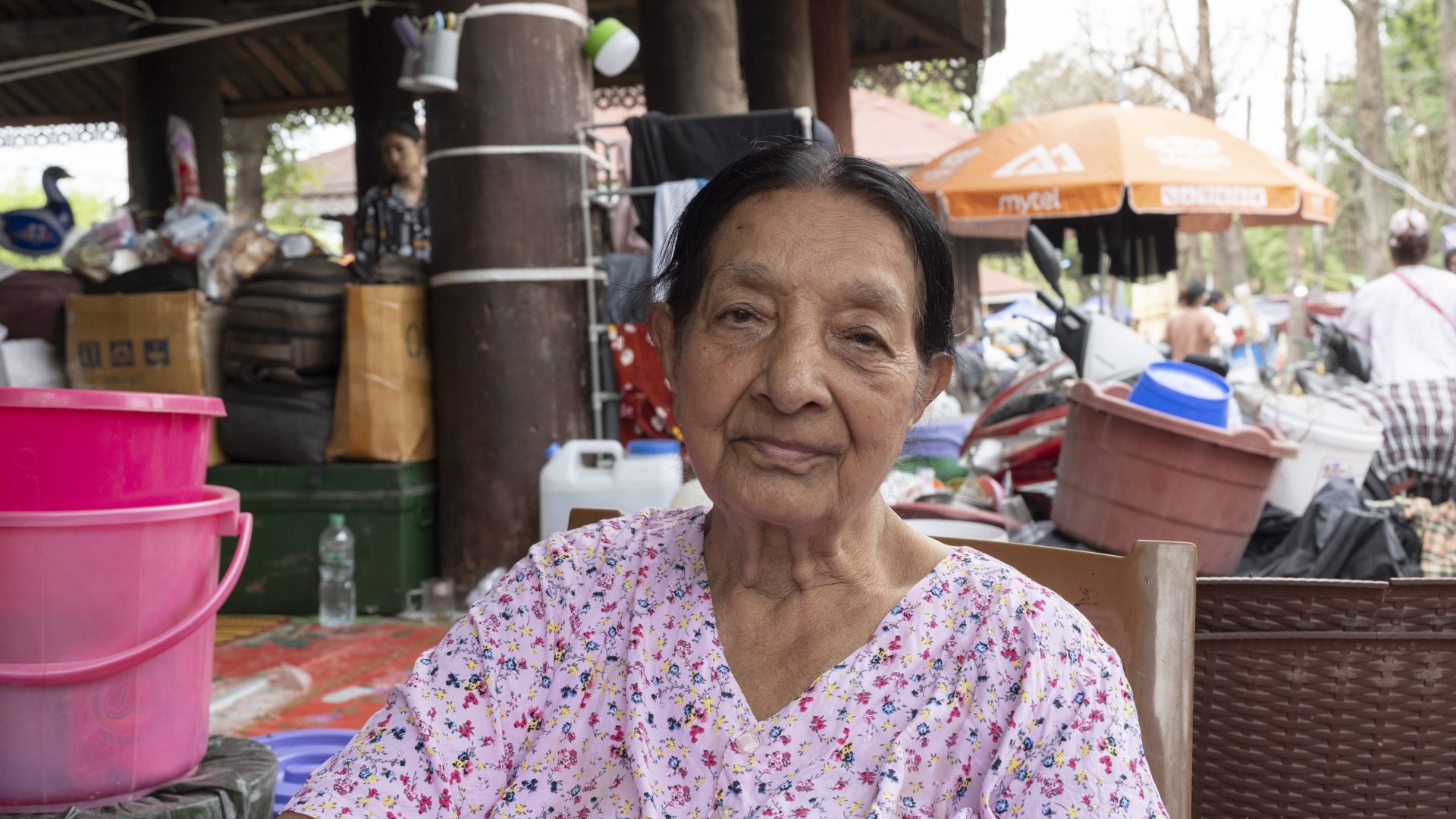Shaken to the core: A city and its people displaced
When the earthquake struck, the city of Mandalay bore the brunt of the destruction. Buildings cracked open, staircases collapsed, and thousands were forced to flee. The shock was physical and emotional, and for many older people like Daw Kyi Kyi Win, it was life-altering.
Living on the third floor of a residential building, Daw Kyi Kyi Win was reading quietly when the earth began to tremble. What followed was chaos, fear, and a long journey of displacement – one that would rob her not only of her home, but also of her health and independence.
“Help me, help me!”: Escaping the collapse
“I was reading when it happened,” recalls Daw Kyi Kyi Win. “Suddenly everything was shaking. I shouted for help.”
Neighbours rushed in and carried her, taking turns to get her safely down the damaged stairs. Her family escaped uninjured, but their building was left structurally unsound. The back had collapsed, and the front was deemed too dangerous to re-enter.
“We lost everything,” she says. “The pantry, closets, dishes—all gone.”
From home to pavement: A life in limbo
Following the earthquake, the family spent a week living on the pavement. They now live in an emergency shelter, alongside over 700 others.
Daw Kyi Kyi Win shares the space with her son, daughter-in-law and grandchildren. Once relatively independent, she now relies completely on them.

